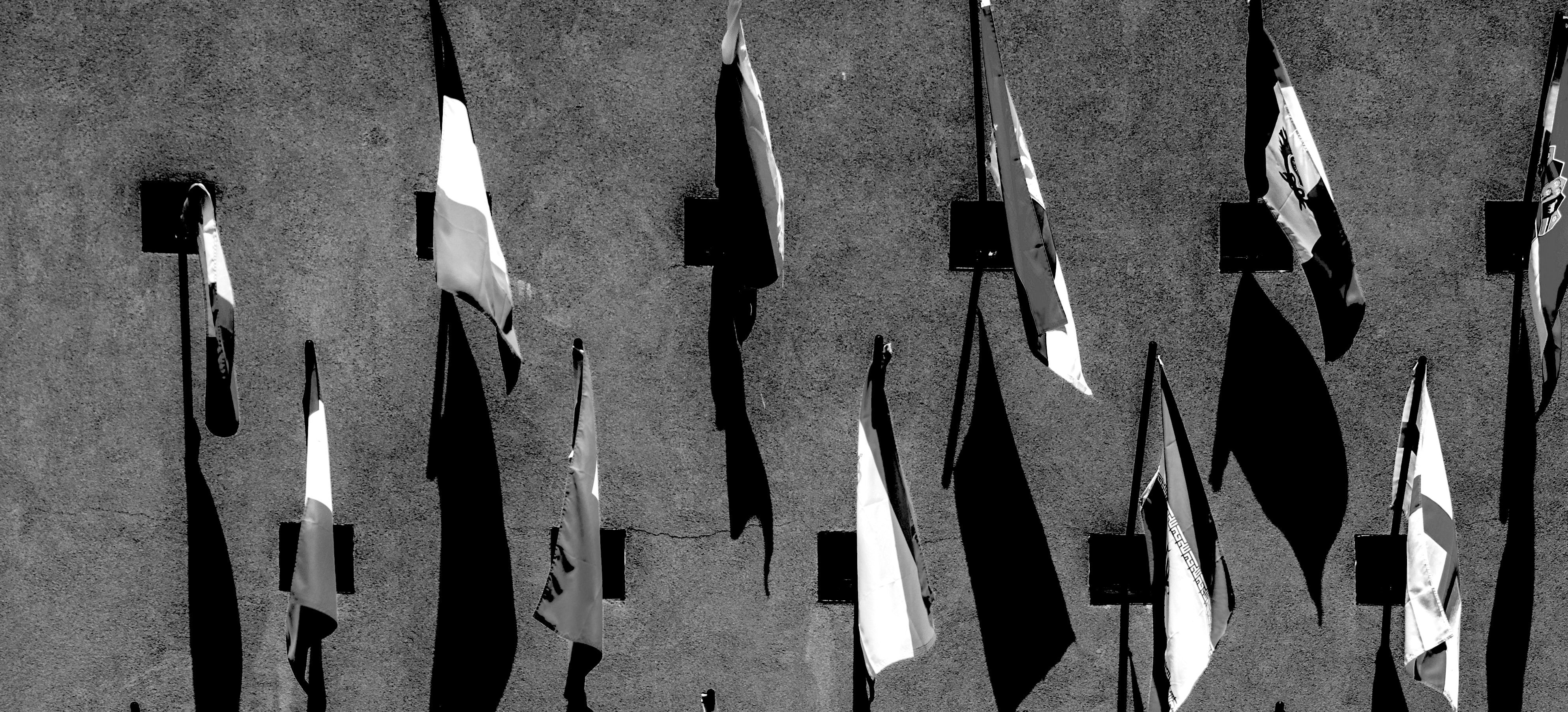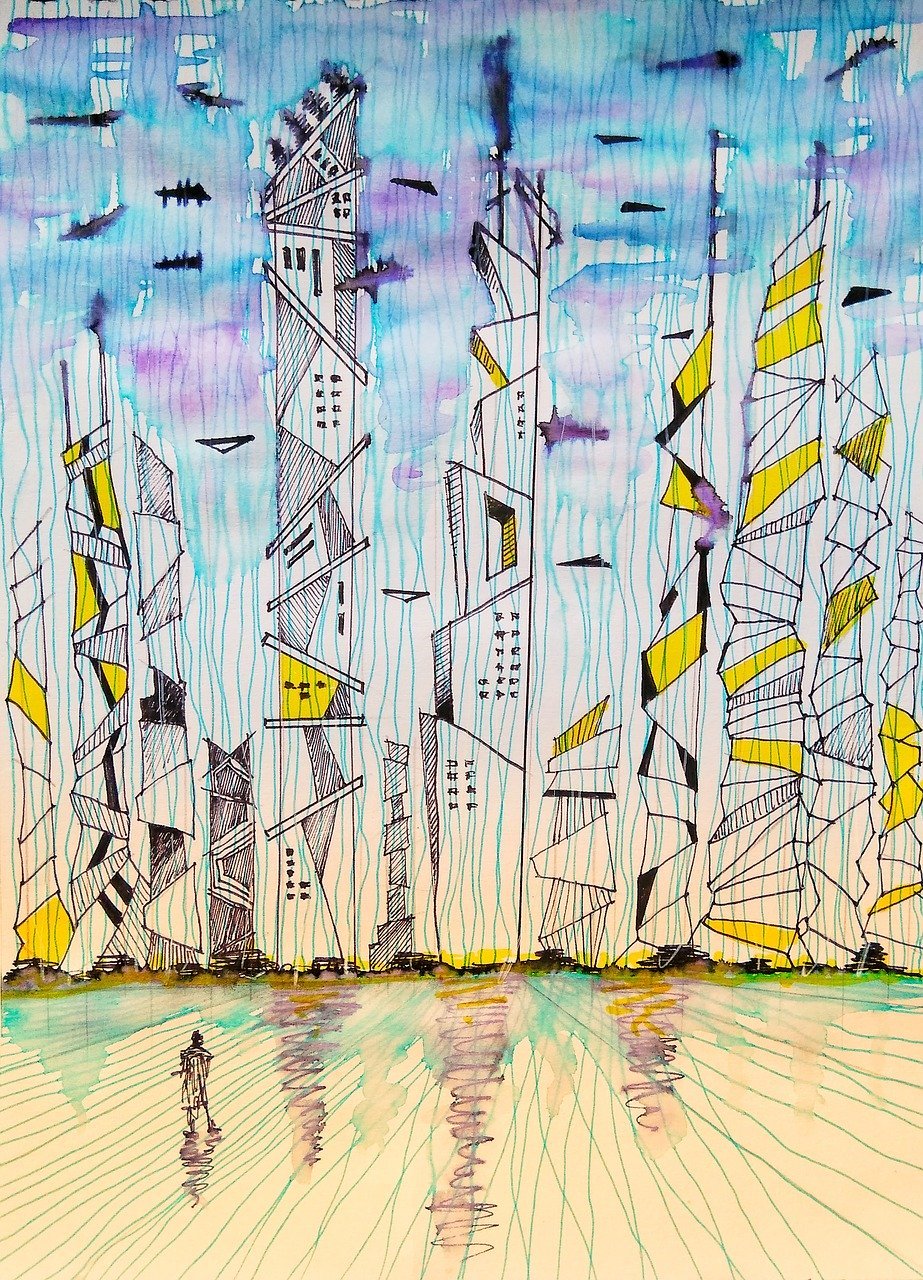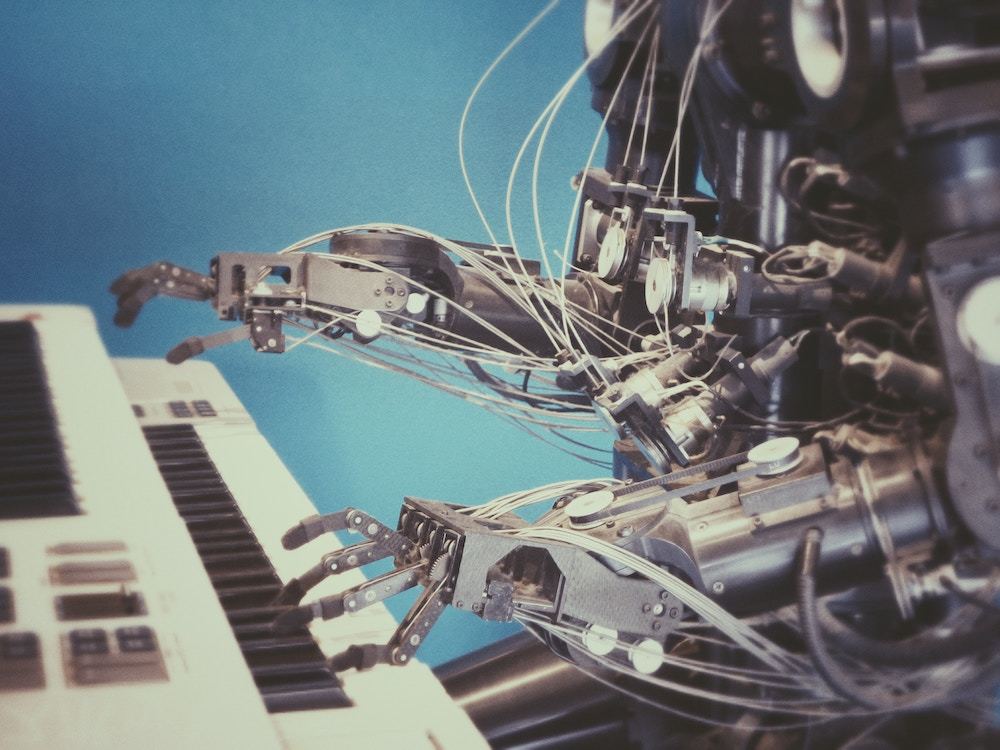David Bent
David Bent imagines a future where prosperity has been changed dramatically because of the effects of climate change and AI. The piece asks questions on what is going to happen to socio-ecological systems that we need to live our version of the good life. We are used to the nation-state providing us with the safety we need, but will that institution last forever? Will the notion of ‘work’ still exist in a world with fully-diffused automation? What are the organisational forms – the ways of combining human skills with computational abilities – that might arise? How might all that effect people’s experience of their own prosperity? This piece of economic science fiction provokes us on what is needed for prosperity.
Welcome to the latest Presencing of 2119, when we together make meaning from experiences so we can steer the future of our organisation.[1] (Technical announcement: we are using the latest iteration of the ‘Harry Seldon All Together’ process.) As expected with the recent turbulence, the collective learning planning has indicated we need to engage with more than events of the last year. Instead, we must consider the character of society today compared to last century. As normal, your live inputs to this meaning-stream will be integrated as it unrolls.

“A person’s additionality was the result of their intelligence and effort, or as one simplified: Merit = Effort + IQ.”
Let us start by describing what characterised society a hundred years ago, when our grandparents grew up.
The most powerful actor was the nation state. Countries could enhance competitiveness by reforming their education systems and improving equality of opportunity. For an individual, social standing came from their contribution to their employer, and the status of that institution or profession. A person’s additionality was the result of their intelligence and effort, or as one simplified[2]: Merit = Effort + IQ.
In the Darwinian competition of the time, the companies that promoted on people merit did better. It was accepted across society that those who added more should have more rewards. While, the outcomes were unequal, the way they happened was (mostly) seen as legitimate. People believed their countries were meritocratic, and constrained efforts to act on remaining privilege or structural barriers.
This was despite how much proximity mattered: being in a city – especially a major, global city – gave you an advantage, because they acted as attractors, and there was a higher dynamic flow of knowledge.
Even with the dislocations of the 21st century, there is continuity to 2119. We still have Darwinian competition, and relative status comes from how much we contribute. We have an accepted moral code, that has glued together our situation – until the tensions of the last year.
But so much else is different.
Competition today is not between companies, hosted within countries. It is between ‘Integrities’[3], groups of people and Minds.[4] People in 2019 would struggle to grasp Integrities, probably calling them a hybrid of a movement, a company and a geographically-distributed commune. They provide the ‘imagined community’[5] for their members (instead of that old-fashioned patriotic attachment to ineffectual countries).
Additionality today is not from individuals alone, but from mixed teams configured within their Integrity.
What matters is not effort and IQ, but ability to make significant meaning with and for your Integrity, so that it can adapt at the pace and scale required.
In our time of on-going disruption from climate change and more, learners inherit the Earth.[6] Status applies to teams, and how well we help our tribe innovate.

How did we get here?
One hundred years ago, people thought that what they quaintly called ‘digital technologies’ would profoundly affect ‘work’ and lead to fewer jobs. That turned out to be the wrong fear.
Permanent jobs only existed because they solved a ‘market failure’ for organisations of finding the right people at the right moment.[7] But digital platforms made that discovery process far easier, by cutting roles up into specific tasks and getting people to bid for them. The company focused on their core functions, reduced costs and pushed risk on to individuals.[8] People were in permanent competition, getting paid task-by-task. There were enough tasks – of old and new types – to keep people occupied. The real fear for people was secure livelihoods, as they had limited bargaining power.[9]
For a while there was near-full participation with low wage growth. As people could not spend more, companies invested less. Flat revenues and lower costs meant profits rose while productivity stagnated.[10] Good for share prices, bad for the economy and society.
That was part of what made the 2020s deeply uncertain. People in the West felt their status was at risk, from on-going stagnant wages, immigration and the rise of confident formerly ‘developing’ nations like China.
We now think of the decades to the 2050s as shocking us out of a vicious spiral, but at the time people just felt in a tailspin. There was the push of climate chaos and the pull of collective intelligence.
Climate change, over-exploitation, and pollution kept ratcheting up environmental pressure. Each year a new crisis. A drought in the world’s bread basket. A fishery collapsing. A region without water all summer. A city ‘heat horror’, where consecutive hot days meant no chance for recovery and many deaths. We were learning that could not treat nature as infinite.[11]

What people needed was security in a turbulent world. This was the pull offered by being part of an Integrity. Join, and be part of a tribe that can adapt as fast as change is occurring.
The 2020s was also a time of existential conflict about forms “collective intelligence”. One analyst at the time[12] described how populist leaders were running an insurgency against mainstream institutions, from the media to the global trade system. The global alt-right “had discovered some key ways to tap into the power of decentralized collective intelligence and this is its principal advantage”.
In a non-linear world of continuous learning, we innovate as tribes. Through the 2020s and beyond a series of Integrities emerged, global tribes that use their collective intelligence as part of its own comparative advantage. The Darwinian struggle today is within ever-evolving ecosystem of Integrities. These are the ones who have a well-operating combination of functional capabilities, supporting infrastructures, organisational routines for their ‘governance commons’ and active protection against threats.[13] They have a healthy platform culture which enhances their competitive advantages.[14]
The most important feature of the successful Integrities is that they can learn quickly, not just improving (‘single loop’) or even creating new approaches to replace a struggling one (‘double loop’) but able to rethink how to think (‘triple loop’).[15]
Today’s Integrities have physical redoubts, where the most sensitive operations can be housed, and where some members live and more can retreat if needed. A typical Integrity has a string around the world, in different types of location. Some are in major cities, which are vital for learning and responding. Others are in more isolated places, as back-up and pursue retribution if a more exposed location is attacked – a set up which results in few full-on assaults. Urban centres are now a patch-work quilt of territories run by different Integrities.

One 20th century visionary had said people will be paid in the future based on how well they work with robots.[16] He was part-right.
Our success today comes from how well we help the collective intelligence of our Integrity to make sense of situations quickly, and act on that insight so that it can thrive some more. Machines bring fast analysis and pattern recognition that answers a question. People bring emotionally- and socially-astute insights that reveal the quest behind the question.[17]
“Machines bring fast analysis and pattern recognition that answers a question. People bring emotionally- and socially-astute insights that reveal the quest behind the question.”
Unlike a 20th century meritocracy, our hierarchy is made up of teams not individuals. The weakest contribution is from human-only teams, who form the bottom rung. The next level is Centaurs, teams composed of people and Minds working together[18], and Augmenteds, who have integrated bio-, cogno-, nano and info-tech into their bodies.[19]
At the top are the Resonators. These are the teams that shape meaning for all the participants and so give direction for the whole Integrity. A consistent intent is the supreme asset[20] because it aligns the billions of choices by an Integrity over time. It ensures the learning is consistently adding to capabilities that are coherent. Helping the Integrity understand what a situation means and aligning the response with the long-term intention is vital.
Back in the 2020s, the most successful were populist demagogues. They had tremendous victories at first, laying waste to the standards and norms which had held meritocracy together. But that just loosed the next wave of collective intelligence. The demagogues could not master the third level of learning, and so found themselves – along with the previous incumbent institutions of the 20th century – beautifully equipped to deal with a world that no longer existed.[21]
Today’s Integrities succeed when they have: a distinct advantage, reinforced through use; a culture of both loyalty and change; and can adapt faster than the context is changing. Integrities value meaning-making that induces useful adaptation. At its best, such meaning making enhances the contribution of the rest, because it helps the Integrity to rethink how to think.
Our moral code is to reward those who make sense for and with others, and bringing forth the Integrity-wide judgement on what to do.
But in this last year, the human-only teams have started to walk away[22] from the Integrities. They see no hope to move up the social ladder, and no point to keep buying into our moral code. What is to be done?

[Footnotes]
[1] Otto Scharmer, Theory U [2] Michael Young, The Rise of Meritocracy [3] Borrowing from Martin Albrow in The Global Age [4] Following Iain M Banks’ usage in The Culture SciFi book series [5] Benedict Anderson, in Imagined Community [6] Eric Hoffer, “In times of change, learners inherit the earth, while the learned find themselves beautifully equipped to deal with a world that no longer exists.” [7] Ronald Coase The Nature of the Firm [8] William Lazonick, The New Economy Business Model and the Crisis of U.S. Capitalism [9] Brookings Institute, Robots aren’t taking the jobs…just the paychecks [10] McKinsey and Co, Solving the Productivity Puzzle [11] Steffen et al, The Anthropocene Equation [12] Jordan Greenhall, Situational Assessment 2017: Trump edition [13] Following Geoff Mulgan, Big Mind [14] Arun Sundararajan, What Airbnb Gets About Culture that Uber Doesn’t [15] Gregory Bateson, Steps to an Ecology of Mind [16] Kevin Kelly in WIRED [17] Andrew McAfee and Erik Brynjolfsson Machine, Crowd, Platform [18] Nicky Case, How to Become a Centaur [19] David Wood, Transcending Politics and Yuval Noah Harari, Homo Deus [20] Big Innovation Centre, The Purposeful Company Interim Findings [21] Eric Hoffer, “In times of change, learners inherit the earth, while the learned find themselves beautifully equipped to deal with a world that no longer exists.” [22] Cory Doctorow, Walkaway
This piece is adapted from David Bent’s ‘The Rise of Sententocracy’ written for The Young Foundation’s competition on Beyond Meritocracy.
Image credits in order: OpenClipart-Vectors from Pixabay, Jason Leung on Unsplash, Виктория Бородинова from Pixabay, Hermes Rivera on Unsplash, Franck V. on Unsplash, Antwon I on Unsplash.
Fatemeh Sadeghi
30 May 2024 Feminists in the Global South have stepped out of the conventional territories of ‘women’s matters’ into more fund...